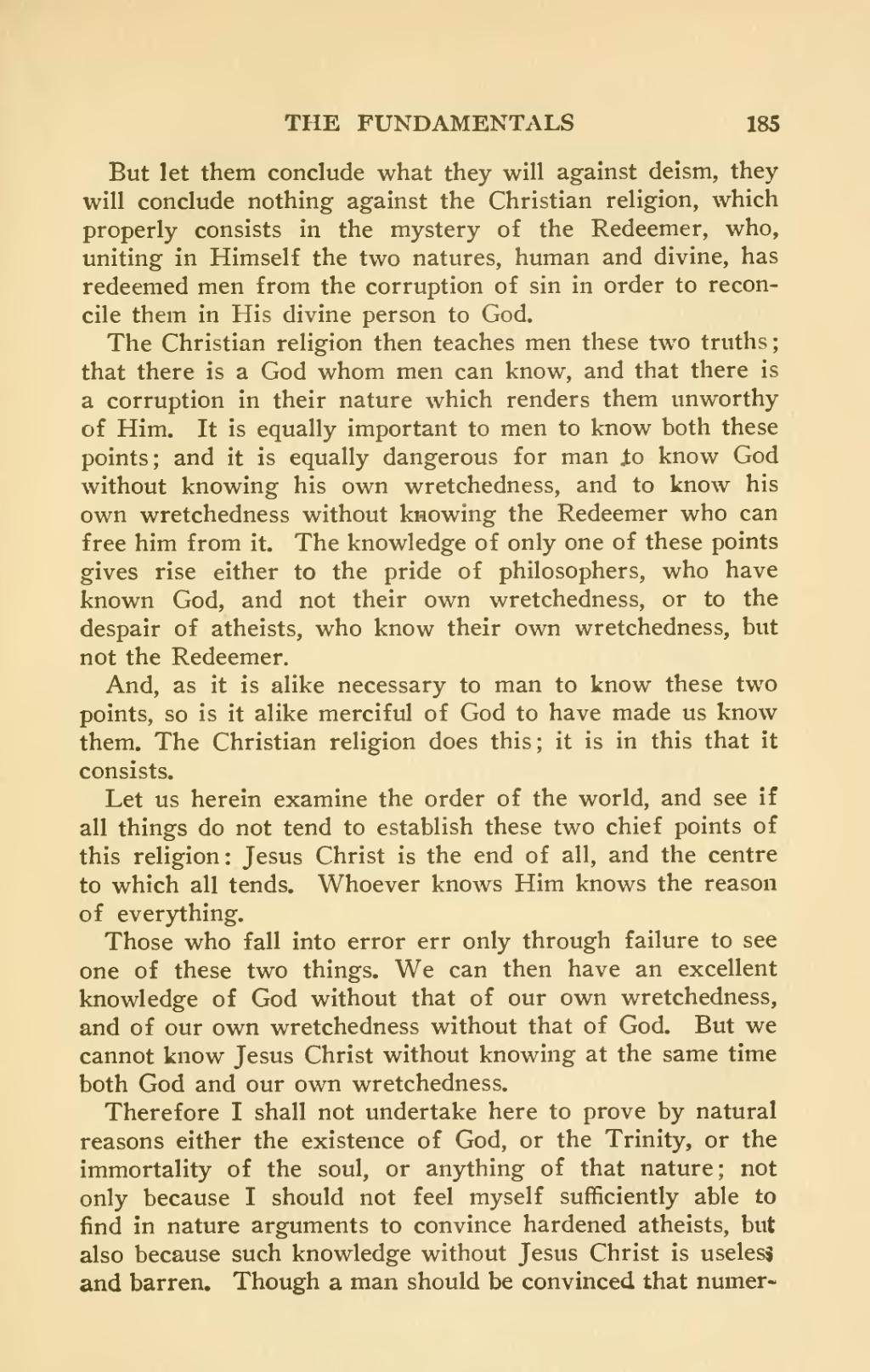But let them conclude what they will against deism, they will conclude nothing against the Christian religion, which properly consists in the mystery of the Redeemer, who, uniting in Himself the two natures, human and divine, has redeemed men from the corruption of sin in order to reconcile them in His divine person to God.
The Christian religion then teaches men these two truths; that there is a God whom men can know, and that there is a corruption in their nature which renders them unworthy of Him. It is equally important to men to know both these points; and it is equally dangerous for man to know God without knowing his own wretchedness, and to know his own wretchedness without knowing the Redeemer who can free him from it. The knowledge of only one of these points gives rise either to the pride of philosophers, who have known God, and not their own wretchedness, or to the despair of atheists, who know their own wretchedness, but not the Redeemer.
And, as it is alike necessary to man to know these two points, so is it alike merciful of God to have made us know them. The Christian religion does this; it is in this that it consists.
Let us herein examine the order of the world, and see if all things do not tend to establish these two chief points of this religion: Jesus Christ is the end of all, and the centre to which all tends. Whoever knows Him knows the reason of everything.
Those who fall into error err only through failure to see one of these two things. We can then have an excellent knowledge of God without that of our own wretchedness, and of our own wretchedness without that of God. But we cannot know Jesus Christ without knowing at the same time both God and our own wretchedness.
Therefore I shall not undertake here to prove by natural reasons either the existence of God, or the Trinity, or the immortality of the soul, or anything of that nature; not only because I should not feel myself sufficiently able to find in nature arguments to convince hardened atheists, but also because such knowledge without Jesus Christ is useless and barren. Though a man should be convinced that numer-
